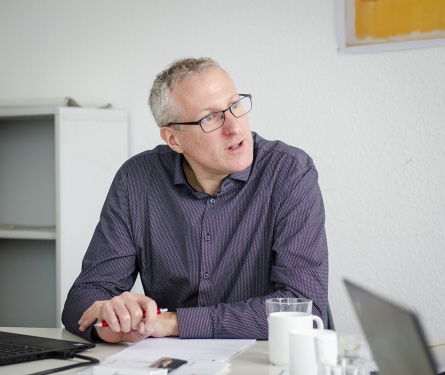
Stefan Giljum from the Vienna University of Economics and Business has visited CRC 1342 to present his database and analysis project FINEPRINT. The aim of FINEPRINT is to generate knowledge that allows the connection between production and consumption behaviour (focus: "Global North") and the ecological and social consequences of resource extraction on site (focus: "Global South") to be analysed. Basically, global value chains are broken down into their material composition. The result is a growing database with disaggregated and georeferenced data.
In front of a larger audience, Giljum traced the paths of selected material flows from the point of resource extraction through production to the value-added segment in the consumer regions and analysed their ecological consequences at the point of raw material extraction (e.g. water scarcity, deforestation, land use). The subsequent discussion also focused on how these data enable analyses with regard to socio-economic effects. For the CRC members, a very interesting point of discussion was how subnational data can supplement the (inter)national perspective of the CRC.
In the morning, the A01 project had an internal meeting with Stefan Giljum. There he presented in detail the database and analysis project FINEPRINT, which is equipped with an ERC consolidator grant. This was followed by an intensive exchange of experiences on challenges and possible solutions in setting up large information systems such as WeSIS or the FINEPRINT database. In particular, the following points were discussed:
- Handling copyrights when using existing data sets
- Documentation and maintenance of your own databases
- Implementation of the Open Source Principles
- Data quality (e.g. validation, harmonisation)
It turned out that FINEPRINT is a good example for the construction of a database with excellent visualisations and possibilities for analysis, which WeSIS can use as orientation in some respects. During the discussion, some intersections between the projects emerged, which gave rise to ideas for future cooperation.
Contact:
Prof. Dr. Ivo Mossig
CRC 1342: Global Dynamics of Social Policy
Mary-Somerville-Straße 7
28359 Bremen
Phone: +49-421-218 67410
E-Mail: mossig@uni-bremen.de










